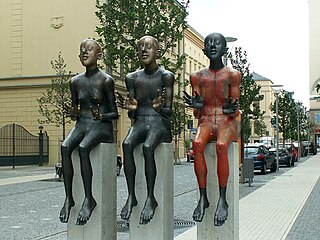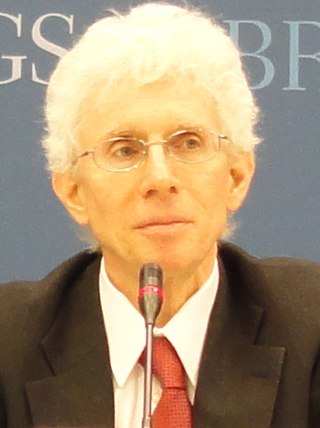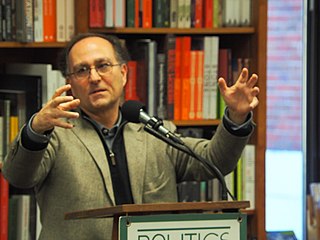Related Research Articles

Axiology is the philosophical study of value. It includes questions about the nature and classification of values and about what kinds of things have value. It is intimately connected with various other philosophical fields that crucially depend on the notion of value, like ethics, aesthetics or philosophy of religion. It is also closely related to value theory and meta-ethics. The term was first used by Eduard von Hartmann in 1887 and by Paul Lapie in 1902.

Ethics or moral philosophy is a branch of philosophy that "involves systematizing, defending, and recommending concepts of right and wrong behavior". The field of ethics, along with aesthetics, concerns matters of value; these fields comprise the branch of philosophy called axiology.

Jurisprudence is the philosophy and theory of law. It is concerned primarily with what the law is and what it ought to be. That includes questions of how persons and social relations are understood in legal terms, and of the values in and of law. Work that is counted as jurisprudence is mostly philosophical, but it includes work that also belongs to other disciplines, such as sociology, history, politics and economics.

Justice, in its broadest sense, is the concept that individuals are to be treated in a manner that is equitable and fair.

Political philosophy or political theory is the philosophical study of government, addressing questions about the nature, scope, and legitimacy of public agents and institutions and the relationships between them. Its topics include politics, liberty, justice, property, rights, law, and the enforcement of laws by authority: what they are, if they are needed, what makes a government legitimate, what rights and freedoms it should protect, what form it should take, what the law is, and what duties citizens owe to a legitimate government, if any, and when it may be legitimately overthrown, if ever.

Philosophy of law is a branch of philosophy that examines the nature of law and law's relationship to other systems of norms, especially ethics and political philosophy. It asks questions like "What is law?", "What are the criteria for legal validity?", and "What is the relationship between law and morality?" Philosophy of law and jurisprudence are often used interchangeably, though jurisprudence sometimes encompasses forms of reasoning that fit into economics or sociology.
Communitarianism is a philosophy that emphasizes the connection between the individual and the community. Its overriding philosophy is based on the belief that a person's social identity and personality are largely molded by community relationships, with a smaller degree of development being placed on individualism. Although the community might be a family, communitarianism usually is understood, in the wider, philosophical sense, as a collection of interactions, among a community of people in a given place, or among a community who share an interest or who share a history. Communitarianism usually opposes extreme individualism and rejects extreme laissez-faire policies that deprioritize the stability of the overall community.
Relativism is a family of philosophical views which deny claims to objectivity within a particular domain and assert that valuations in that domain are relative to the perspective of an observer or the context in which they are assessed. There are many different forms of relativism, with a great deal of variation in scope and differing degrees of controversy among them. Moral relativism encompasses the differences in moral judgments among people and cultures. Epistemic relativism holds that there are no absolute principles regarding normative belief, justification, or rationality, and that there are only relative ones. Alethic relativism is the doctrine that there are no absolute truths, i.e., that truth is always relative to some particular frame of reference, such as a language or a culture. Some forms of relativism also bear a resemblance to philosophical skepticism. Descriptive relativism seeks to describe the differences among cultures and people without evaluation, while normative relativism evaluates the word truthfulness of views within a given framework.

John Bordley Rawls was an American moral, legal and political philosopher in the liberal tradition. Rawls has often been described as one of the most influential political philosophers of the 20th century.

Sir Isaiah Berlin was a Russian-British social and political theorist, philosopher, and historian of ideas. Although he became increasingly averse to writing for publication, his improvised lectures and talks were sometimes recorded and transcribed, and many of his spoken words were converted into published essays and books, both by himself and by others, especially his principal editor from 1974, Henry Hardy.
Pluralism as a political philosophy is the recognition and affirmation of diversity within a political body, which is seen to permit the peaceful coexistence of different interests, convictions, and lifestyles. While not all political pluralists advocate for a pluralist democracy, this is the most common stance, because democracy is often viewed as the most fair and effective way to moderate between discrete values. Political theorist Isaiah Berlin, a strong supporter of pluralism, wrote: "let us have the courage of our admitted ignorance, of our doubts and uncertainties. At least we can try to discover what others ... require, by ... making it possible for ourselves to know men as they truly are, by listening to them carefully and sympathetically, and understanding them and their lives and their needs... ." Pluralism thus tries to encourage members of society to accommodate their differences by avoiding extremism and engaging in good faith dialogue. Pluralists also seek the construction or reform of social institutions in order to reflect and balance competing principles.

Virtue ethics is an approach that treats virtue and character as the primary subjects of ethics, in contrast to other ethical systems that put consequences of voluntary acts, principles or rules of conduct, or obedience to divine authority in the primary role.

Ronald Myles Dworkin was an American legal philosopher, jurist, and scholar of United States constitutional law. At the time of his death, he was Frank Henry Sommer Professor of Law and Philosophy at New York University and Professor of Jurisprudence at University College London. Dworkin had taught previously at Yale Law School and the University of Oxford, where he was the Professor of Jurisprudence, successor to philosopher H.L.A. Hart. An influential contributor to both philosophy of law and political philosophy, Dworkin received the 2007 Holberg International Memorial Prize in the Humanities for "his pioneering scholarly work" of "worldwide impact." According to a survey in The Journal of Legal Studies, Dworkin was the second most-cited American legal scholar of the twentieth century. After his death, the Harvard legal scholar Cass Sunstein said Dworkin was "one of the most important legal philosophers of the last 100 years. He may well head the list."

Toleration is when one allows, permits, or accepts an action, idea, object, or person that one dislikes or disagrees with.
Cultural pluralism is a term used when smaller groups within a larger society maintain their unique cultural identities, whereby their values and practices are accepted by the dominant culture, provided such are consistent with the laws and values of the wider society. As a sociological term, the definition and description of cultural pluralism has evolved. It has been described as not only a fact but a societal goal.

Joseph Raz was an Israeli legal, moral and political philosopher. He was an advocate of legal positivism and is known for his conception of perfectionist liberalism. Raz spent most of his career as a professor of philosophy of law at Balliol College, Oxford, and was latterly a part-time professor of law at Columbia University Law School and a part-time professor at King's College London. He received the Tang Prize in Rule of Law in 2018.

William Arthur Galston is an American author, academic, and political advisor, who holds the Ezra K. Zilkha Chair in Governance Studies and is a senior fellow at the Brookings Institution. Formerly the Saul Stern Professor and Dean at the School of Public Policy at the University of Maryland and a professor of political science at the University of Texas, Austin, Galston specializes in issues of U.S. public philosophy and political institutions, having joined the Brookings Institution on January 1, 2006.
The Hedgehog and the Fox is an essay by philosopher Isaiah Berlin that was published as a book in 1953. It was one of his most popular essays with the general public. However, Berlin said, "I meant it as a kind of enjoyable intellectual game, but it was taken seriously. Every classification throws light on something". It has been compared to "an intellectual's cocktail-party game".

Robert B. Talisse is an American philosopher and political theorist. He is currently Professor of Philosophy and Chair of the Philosophy Department at Vanderbilt University in Nashville, Tennessee, where he is also a Professor of Political Science. Talisse is a former editor of the academic journal Public Affairs Quarterly, and a regular contributor to the blog 3 Quarks Daily, where he posts a monthly column with his frequent co-author and fellow Vanderbilt philosopher Scott Aikin. He earned his PhD in Philosophy from the Graduate Center of the City University of New York in 2001. His principal area of research is political philosophy, with an emphasis on democratic theory and liberalism.
Gerald Allan Cohen, was a Canadian political philosopher who held the positions of Quain Professor of Jurisprudence, University College London and Chichele Professor of Social and Political Theory, All Souls College, Oxford. He was known for his work on Marxism, and later, egalitarianism and distributive justice in normative political philosophy.
References
- ↑ "Stanford Encyclopedia of Philosophy: Max Weber".
- ↑ Cherniss, Joshua; Hardy, Henry (2013-11-29). "Stanford Encyclopedia of Philosophy: Isaiah Berlin" . Retrieved 2015-01-16.
- ↑ Crowder, George (2002). Liberalism and Value Pluralism. London: Continuum. ISBN 0-8264-5048-2.
- ↑ Kazemzadeh, Hamed (2020). "Hamed Kazemzadeh: Democratic platform in Social Pluralism". Internal Journal of ACPCS (10).
- ↑ Kant I. Critique of Practical Reason 1788 (tr. Abbott T.K., Longmans, Green & Co., London, 1883) p.280
- ↑ Plato Statesman 306; cf. Laws 705, Republic 443
- ↑ Blattberg, Charles (1996). "An Exchange with Professor Sir Isaiah Berlin" (PDF). The Isaiah Berlin Literary Trust.
- ↑ Stephen, James Fitzjames (1874). Liberty, Equality, Fraternity.
- ↑ Liberal Pluralism: The Implications of Value Pluralism for Political Theory and Practice. Cambridge: Cambridge University Press. 2002-05-13. ISBN 9780521813044.
- ↑ Tetlock, P.E.; Peterson, R.; Lerner, J. (2009). "Revising the value pluralism model: Incorporating social content and context postulates". Ontario Symposium on Social and Personality Psychology: Values.
- ↑ Tetlock, P.E. (1986). "A value pluralism model of ideological reasoning". Journal of Personality and Social Psychology. 50 (4): 819–827. doi:10.1037/0022-3514.50.4.819.
- ↑ Haidt, Jonathan (February 11, 2011). "The bright future of post-partisan social psychology". edge.org.
- 1 2 Brown, A. (1986) Modern Political Philosophy; Theories of the Just Society, Middlesex, Penguin Books pp. 157–158